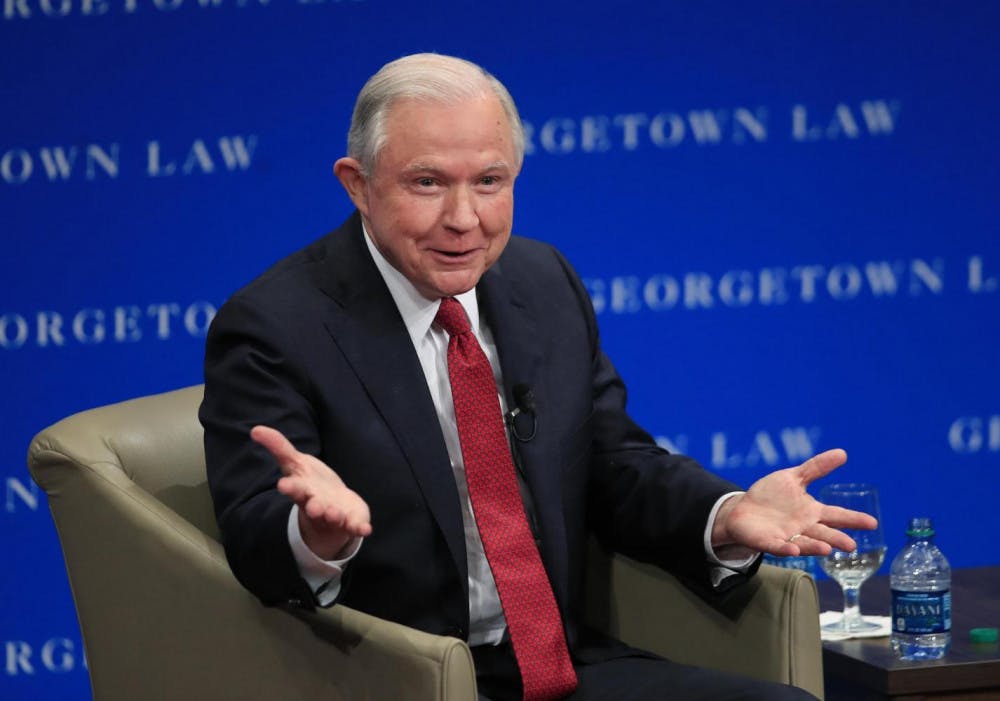Attorney General Jeff Sessions dove into the debate over free speech on college campuses, delivering an address last week that denounced “political correctness” and directly referenced the protests that occurred here last March.
“Freedom of thought and speech on the American campus are under attack,” Sessions said. “The American university was once the center of academic freedom—a place of robust debate, a forum for the competition of ideas. But it is transforming into an echo chamber of political correctness and homogenous thought, a shelter for fragile egos.”
In his speech, given Tuesday, Sept. 26 at Georgetown University, Sessions also suggested that the Department of Justice would begin to involve itself in free speech disputes, even those taking place on private college campuses.
Sessions noted that public events at several colleges have recently been shut down due to student protests, naming the March 2 protests of Charles Murray as one such “frightening example.”
“Student protestors violently shut down a debate between an invited speaker and one of the school’s own professors,” Sessions said of Middlebury. “As soon as the event began, the protesters shouted for 20 minutes, preventing the debate from occurring.”
“When the debaters attempted to move to a private broadcasting location, the protesters — many in masks, a common tactic also used by the detestable Ku Klux Klan — pulled fire alarms, surrounded the speakers, and began physically assaulting them. In short, Middlebury students engaged in a violent riot to ensure that neither they nor their fellow students would hear speech they may have disagreed with.”
Later in his speech, Sessions announced that the Department of Justice would lend its support to an evangelical Christian student at Georgia Gwinnett College, who is suing his school on First Amendment grounds after administrators limited where he could preach.
In order to intervene in the Georgia case, Sessions said the Justice Department would rely on a statement of interest — essentially a formal show of support for the government’s preferred side in a pending lawsuit. Such statements have proved to be powerful means of influencing individual cases, and were used heavily by the Obama administration in civil rights suits.
Sessions suggested that the Georgia lawsuit is only the first of many cases in which the Justice Department plans to ally itself with student free speech advocates.
“We will enforce federal law, defend free speech, and protect students’ free expression from whatever end of the political spectrum it may come,” he said. “To that end, we are filing a statement of interest in a campus free speech case this week and we will be filing more in the weeks and months to come.”
An administrator told The Campus that there is no litigation currently pending against Middlebury in a federal court, but reiterated the college’s commitment to free speech and freedom of inquiry, per its Freedom of Expression Policy.
College spokesman Bill Burger took issue with Sessions’ characterization of the Murray protests.
“It’s regrettable that the attorney general’s recounting of the events at Middlebury College last March was so carelessly inaccurate,” he said.




